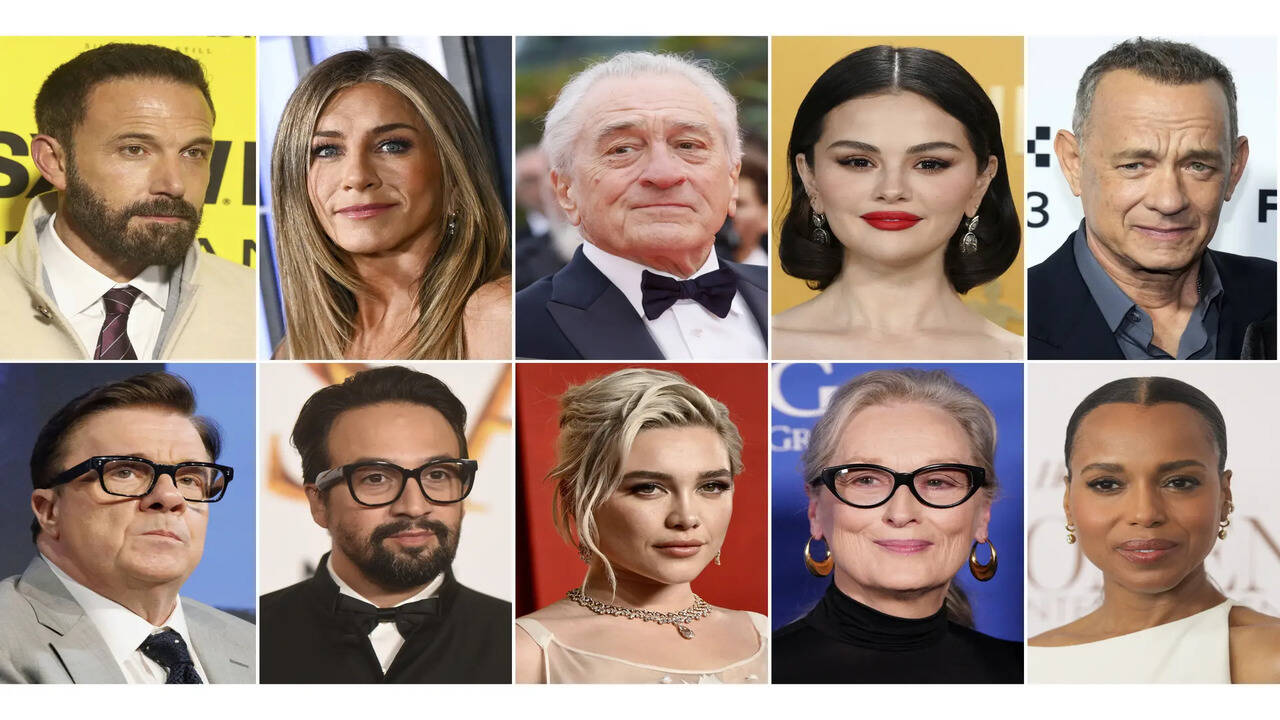The air is crackling. Hundreds of familiar faces—stars known from blockbuster films, TV shows, music to red-carpet moments—have joined together in what many are calling a turning point for media and expression in America. Jennifer Aniston, Ben Affleck, Tom Hanks, and more than 400 other artists have signed an open letter organized by the American Civil Liberties Union (ACLU), decrying the suspension of Jimmy Kimmel Live! as a serious threat to free speech and creative independence. The moment is being called “a dark moment for freedom of speech” by those who believe that what has just happened goes beyond one TV show.
The Backdrop: What Led to the Suspension
On September 15, 2025, during a monologue of Jimmy Kimmel Live!, Jimmy Kimmel questioned how certain political groups were “capitalizing” on the death of conservative activist Charlie Kirk — who was fatally shot at a campus event. Shortly after, ABC, the network that airs Kimmel’s show, faced intense pressure from broadcast affiliates like Nexstar and Sinclair. These companies, along with some political actors and FCC officials, demanded accountability. Some of the demands: that Kimmel issue a public apology and make a donation to Kirk’s family or his nonprofit, Turning Point USA. As pressure mounted, Jimmy Kimmel Live! was pulled from many ABC stations—suspended indefinitely—on the grounds of “reflecting community values” and as a response to complaints.
Many saw this as a network acting under duress, possibly in response to external pressure rather than purely internal review. Supporters of Kimmel call the suspension a dangerous precedent.
The Letter: Who Signed, What It Says
The ACLU open letter includes over 400 names—actors, writers, musicians, directors, entertainers of every stripe. Among them: Tom Hanks, Jennifer Aniston, Ben Affleck, Selena Gomez, Pedro Pascal, Meryl Streep, Robert De Niro, Jane Fonda, Olivia Rodrigo, Julia Louis-Dreyfus, Lin-Manuel Miranda, Natalie Portman, Kerry Washington, and more.
Here are some of its key points:
-
It warns that threatening a private media company with retaliation for speech is a violation of free expression.
-
It describes the suspension of Jimmy Kimmel Live! not simply as a corporate decision, but as part of a larger pattern—artists, journalists, entertainers, and institutions being pressured.
-
The letter calls upon people from all political affiliations to defend the principle that “if one voice is silenced, all voices are threatened.” It frames this as not just a media controversy, but a constitutional issue.
The Pushback: Criticism, Questions, and Possible Risks
Of course, not everyone agrees with everything in the letter—or with how the situation has played out. Some of the critiques include:
-
That certain comments made by Kimmel were arguably provocative or insensitive, especially given the sensitivity around the death of Charlie Kirk. Critics say that public figures should expect scrutiny when addressing high-stakes, painful events.
-
There’s concern that “free speech” becomes a blanket defense, without accountability for hurtful speech. Where do we draw lines between satire, criticism, and personal offense or harm?
-
Others argue that networks are private entities, with contractual obligations to their affiliates and stakeholders. They suggest that broadcasters have obligations not only to creative expression but to advertisers, partner stations, local communities, and regulatory frameworks.
Still, many who signed the letter believe the response to Kimmel’s remarks has shifted from addressing content to exerting control over content—and that’s the heart of what worries them.

What’s Already Changed, and What Could Come Next
The controversy has already triggered several developments:
-
Disney/ABC reportedly held detailed conversations with Jimmy Kimmel, leading to Jimmy Kimmel Live! being allowed to return to the airwaves.
-
NBC affiliates like Nexstar and Sinclair, which were among companies pushing for more accountability or removal, have become focal points for discussions about media ownership and local station autonomy.
-
The ACLU’s framing of the issue as more than just entertainment—pointing to broader concerns about speech suppression—has sparked renewed attention in legal, journalistic, and free-speech advocacy circles.
What many are now asking:
-
Will there be legislative or regulatory changes around how much pressure networks face from political or regulatory bodies concerning content?
-
Will this incident change how hosts and comedians approach commentary, especially around sensitive political issues or recent tragedies?
-
Could broadcasters revise policies for family shows, late-night programs, or any content that touches controversial topics?
The Broader Implications: Society at a Crossroads
This moment feels larger than just Jimmy Kimmel Live! It has become a symbol for many Americans of where free speech may be headed—and whether that direction is where they want it to go.
It touches on how comedy functions in public life. Comedy has long been a way for society to question, to challenge, to reflect—if that space is reduced, many fear we lose more than laughs.
It raises questions about who holds power—networks, stations, regulatory bodies, or the people. When speech becomes subject to removal under pressure, whose voice gets elevated and whose gets silenced?
It tests the balance between community standards (what “local broadcasters” or “local stations” deem acceptable) and universal principles of expression.
Final Word: Why This Matters
If you believe in open conversation, where artists, journalists, and entertainers can comment, critique, and even offend sometimes—this is one of those moments where your attention matters. Because what looks like a fight over a late-night show could very well be about what kind of speech is safe in America’s future.
Jennifer Aniston, Tom Hanks, Ben Affleck, and dozens more signing this letter isn’t just rhetoric. It’s a public stand. It’s saying: if Jimmy Kimmel can be pulled off air under pressure for his words, what about the next comedian, or writer, or reporter? It’s not just about protecting one show—it’s about protecting the possibility that dissent, disagreement, and humor remain part of public life.
We’re watching to see whether this moment leads to change—or becomes another moment where outrage fades, and things stay the same.
Leave a Reply